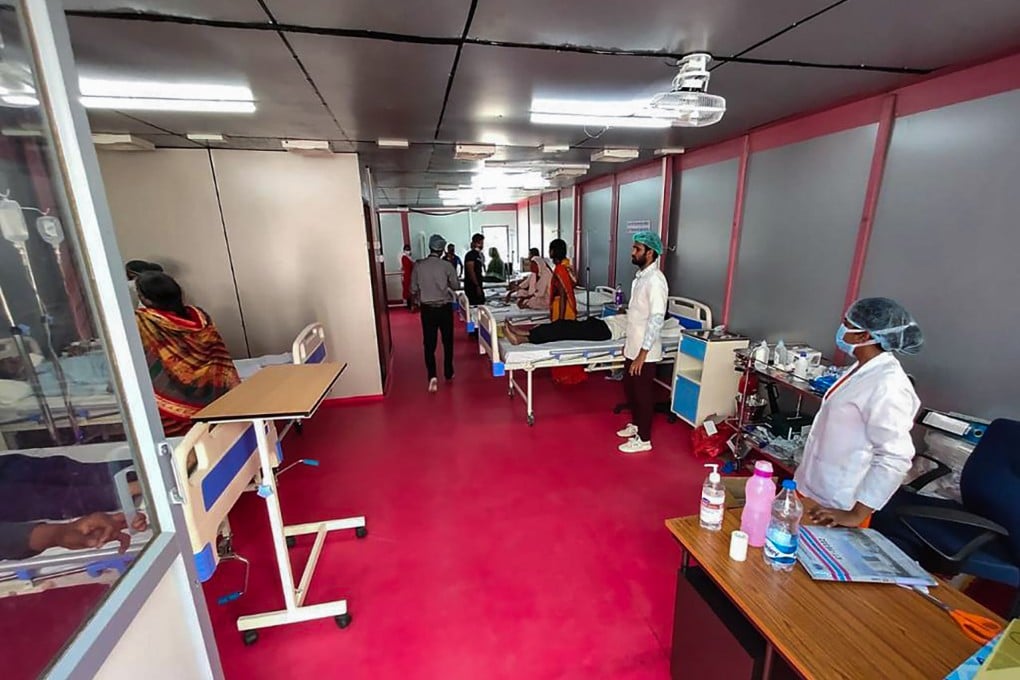The US$140,000 mobile hospitals helping India fight Covid-19: ‘all you need is electricity and water’
- Units designed by Modulus Housing come in three different sizes that can be packed onto the back of a truck and transported to the areas worst affected
- India has recorded nearly 30 million Covid-19 infections yet restrictions have begun to ease in parts of the country

Instead, the 25-year-old civil engineer was fine-tuning a solution: collapsible, portable hospitals that can be transported by trucks and set up within days to offer extra capacity as “hospital extensions”.
Ravichandran was a second-year student at the Indian Institute of Technology in Madras when he started thinking about portable housing solutions, particularly after the 2015 floods in Chennai left many people homeless.
“You need to provide shelter at once in an emergency,” he said. “If, when the emergency is over, these homes are not used, they are in danger of becoming non-performing assets so the key is to be able to move them easily to wherever they are needed.
“In India, this means being able to transport them on narrow roads and on small vehicles. That’s why we made them foldable and collapsible.”